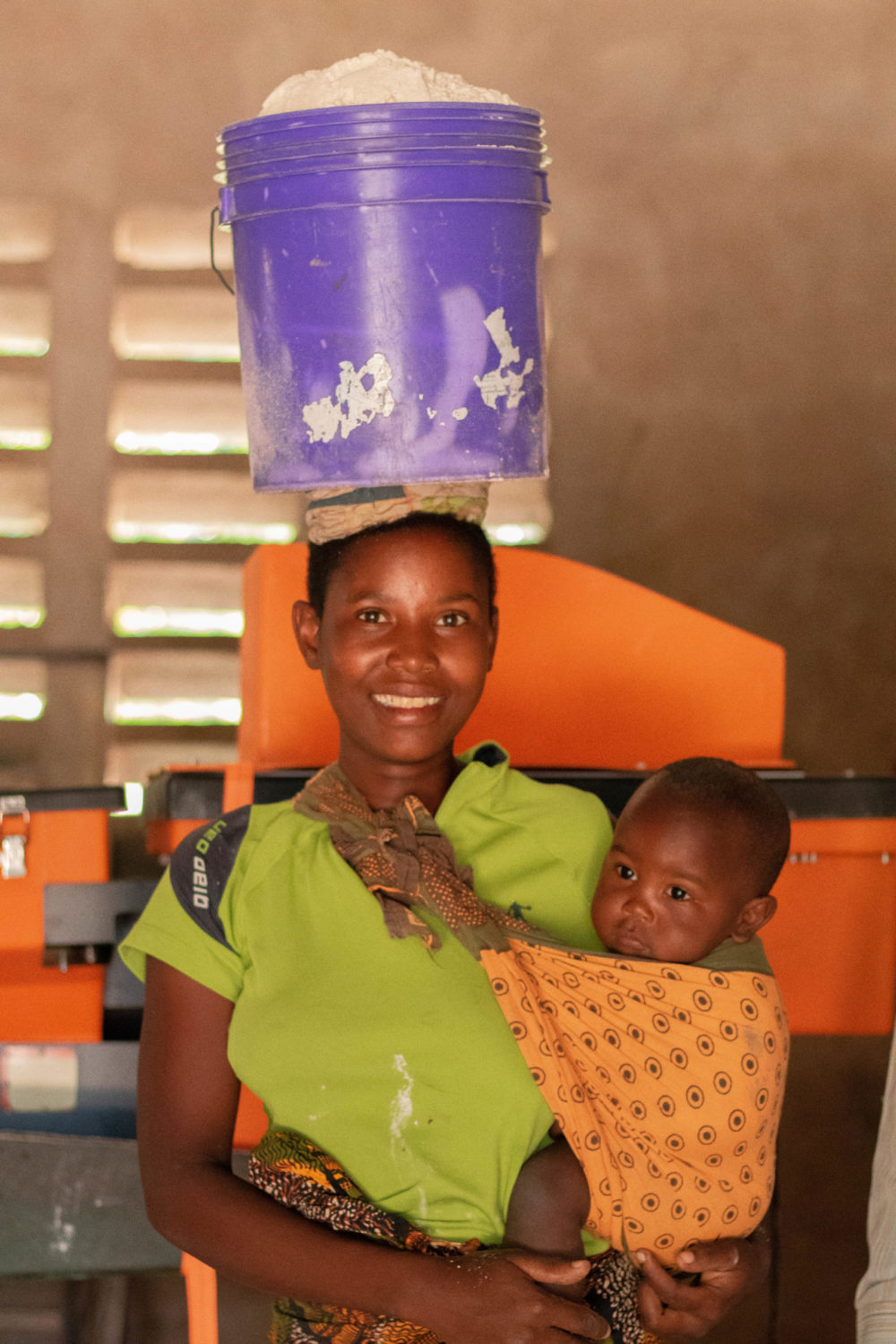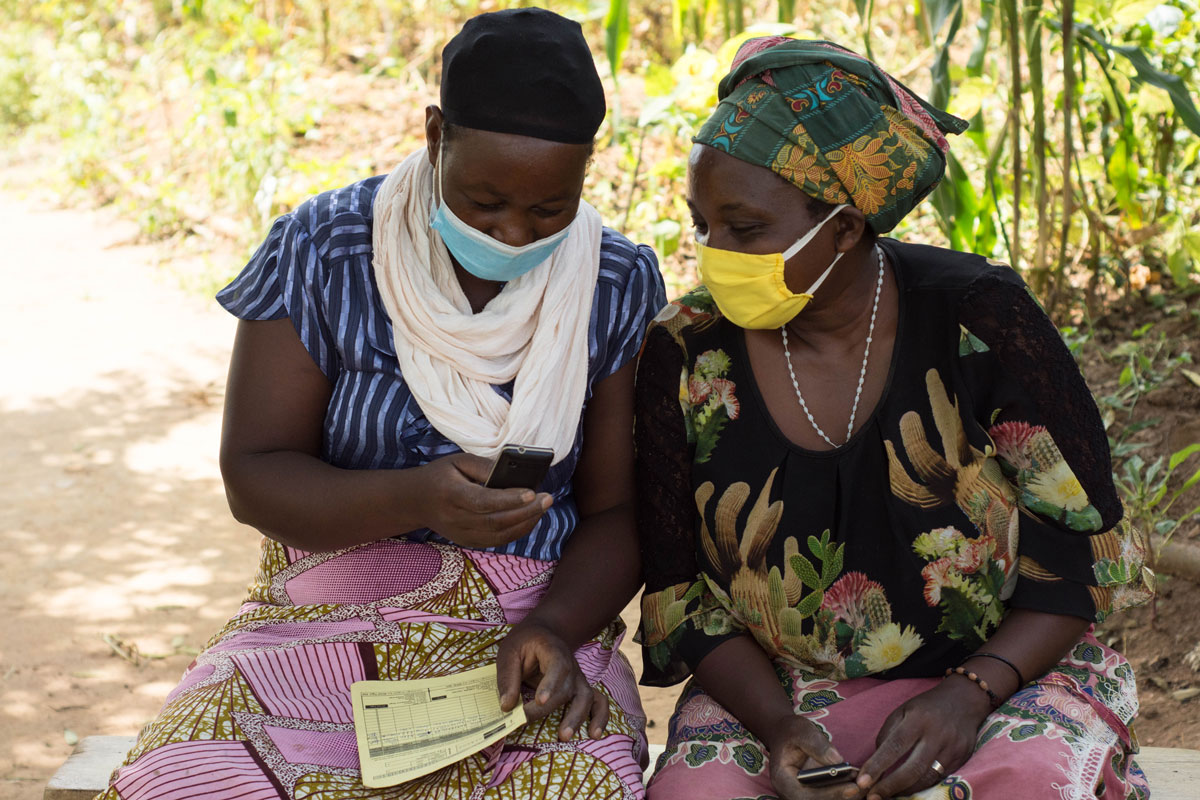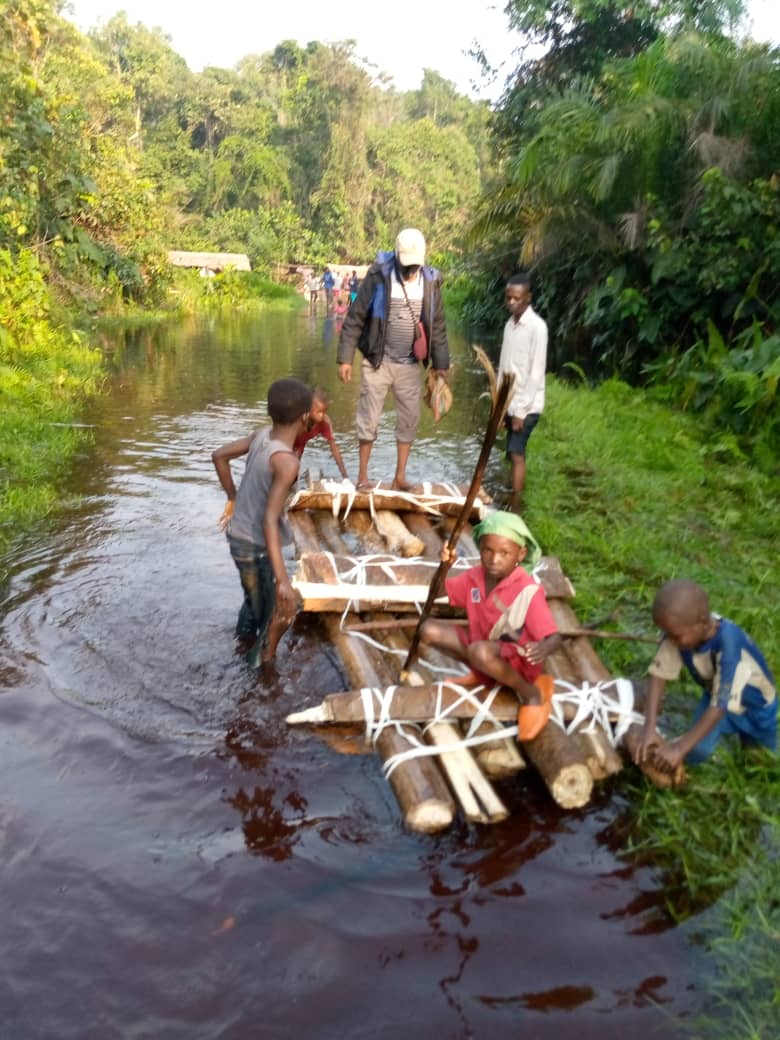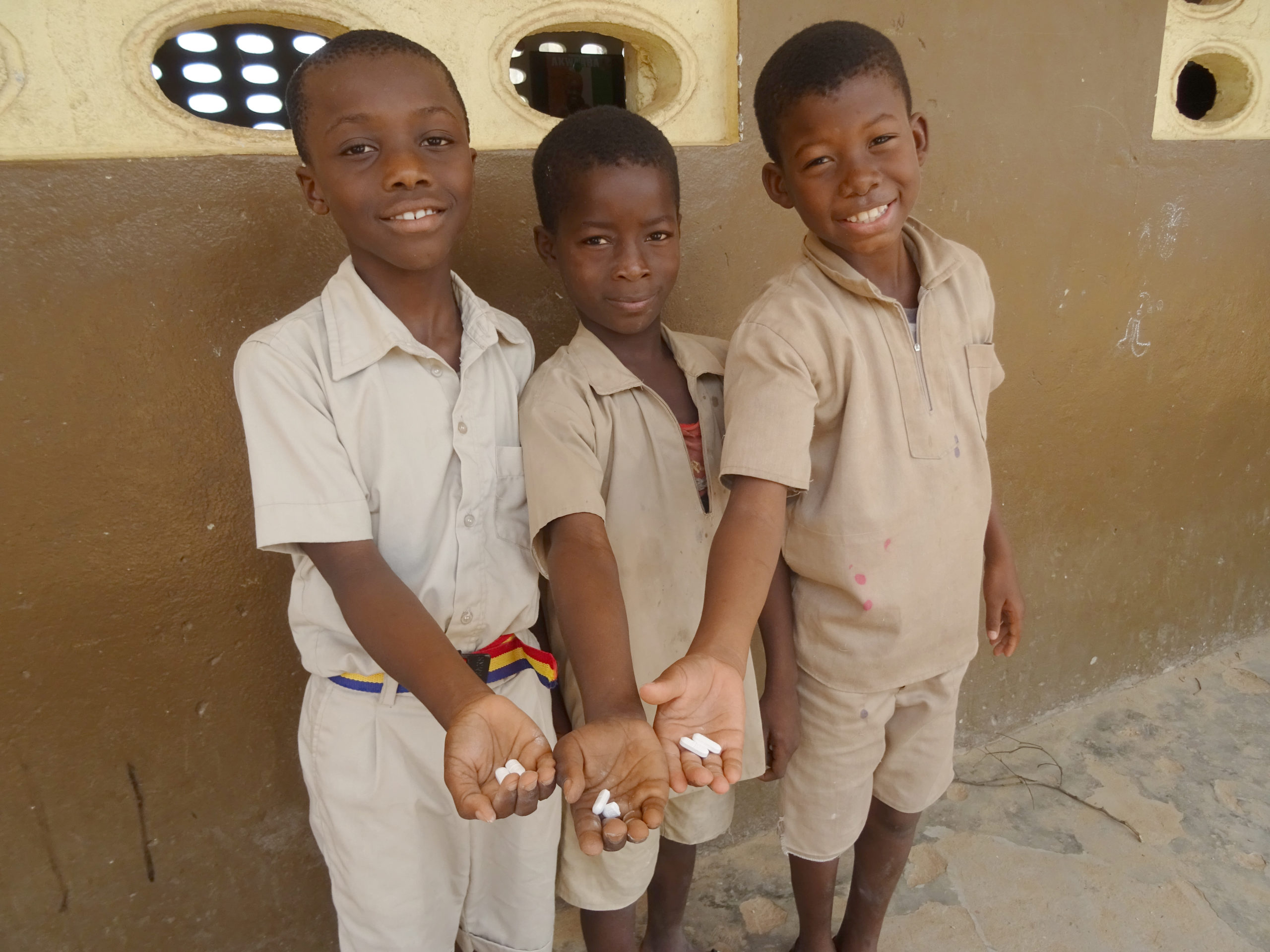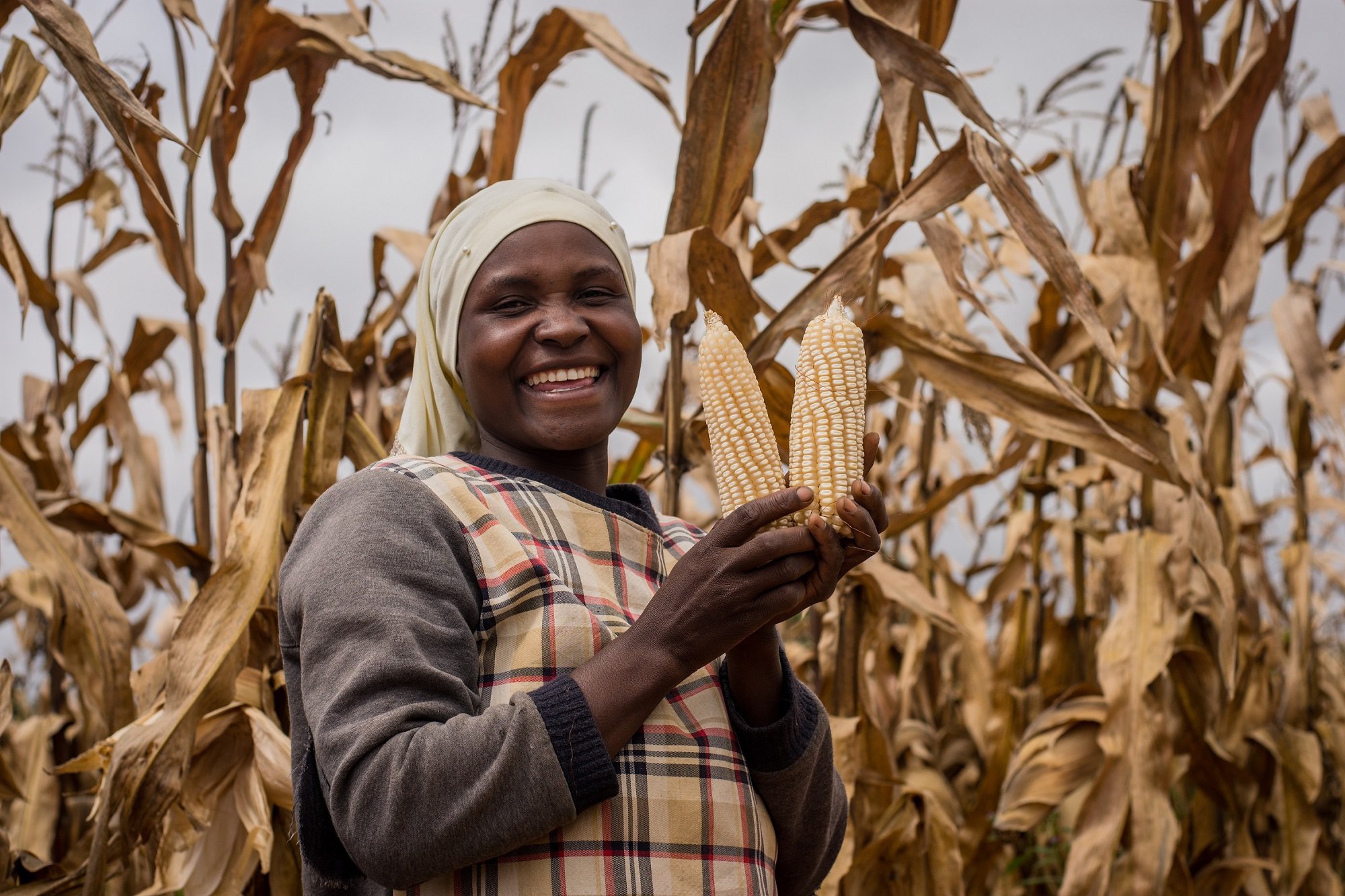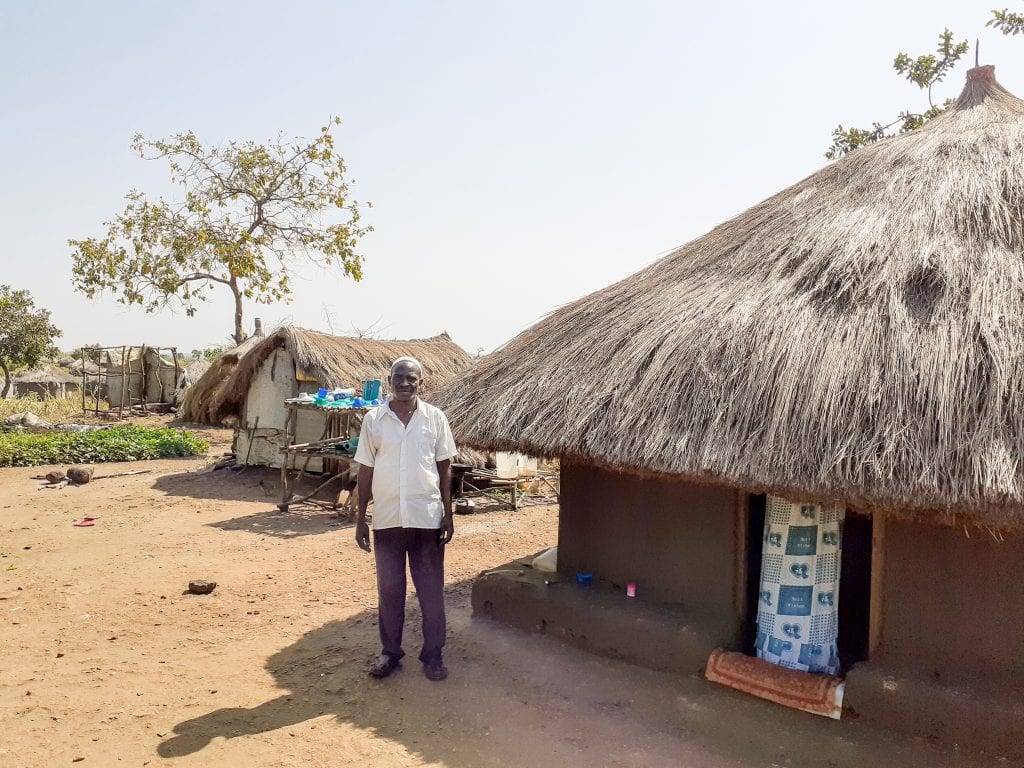Since its invention in 2013, we have installed Sanku’s award-winning Smart dosifier technology in over 400 small commercial mills giving close to two million people in East Africa access to flour that is consistently fortified with vitamins and minerals; cost-effectively reducing stunting, anaemia, birth defects, and saving lives
Our current model, the Pink Flour Bag model, allows us to offset the cost of the added nutrients by bulk buying empty pink flour bags, which we sell to our partner millers to pack their flour. The savings from each bag are enough to cover the entire cost of the millers’ nutrients and, at scale, they will cover our operating costs. This model allows our partner mills to fortify their flour at no added cost to themselves or their customers and ensures long-term sustainability.
There are two main types of small mill – commercial and service mills (or toll mills). Our Pink Flour Bag Model works with small commercial mills, who purchase and mill raw maize, which they sell in branded flour bags purchased from Sanku. We are currently exploring models that will allow us to work sustainably with the other type, service mills, who mill their customers’ own maize in return for a milling fee. Our flour bag model does not work at this type of mill, because they do not need branded bags.
We partnered with USAID’s Feed the Future Nafaka to run “Fortification Road Shows”; working with schools and service millers to fortify 34,000kg of maize and raise awareness around the importance of good nutrition through an SMS campaign, household visits and posters – reaching over 7,500 families. Temporarily installing our dosifiers in service mills allowed families to bring their own maize for milling and fortification in return for an additional fortification fee. These Road Shows demonstrated that with a well-targeted awareness campaign and government encouragement, even the poorest of families can be convinced to pay for fortified food.
In partnership with World Vision International, we recently installed dosifiers at 16 service mills in the Kishapu District of Tanzania where 27.7% of children are stunted and 59.4% of women are anaemic. Over the coming months, Sanku and World Vision International will test solutions for partnering with these mills – including education to drive demand for fortified food and engaging with local government officials to advocate for food fortification. We will also support scale-up plans for mills that have the potential to operate commercially, and who would then be eligible for our Pink Flour Bag model. This pilot could benefit 125,000 people – many more if we find a sustainable model for partnering with service mills.
Finding a sustainable model for working with service mills is important to Sanku, because, although each mill’s customer base is small, the people they serve are among the most food insecure. We have many other ideas for working with service mills – help us test them. Donate today.
